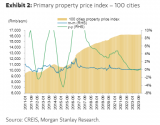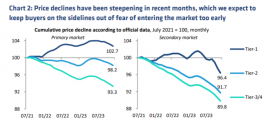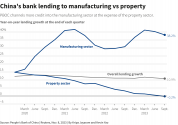The stock market is pretty important. Chinese semiconductor companies for example are using the stock market to raise capital for their fab expansions. Which is why the US is currently trying to crash down the Chinese stock market. Just like they did in the Asian Financial Crisis which was started when George Soros started attacking the Hong Kong Dollar.While you are absolutely correct that the stock market/capital market at large was not important in China's growth trajectory til today, it absolutely will be important going forward.
Anyway, the Chinese government will just hoover these stocks at dimes on the dollar. The market will be further strengthened to prevent these kinds of speculative attacks in the future. Thanks a lot for your money Western speculators.
This comment shows how little you know about the Chinese market. Even I know that the Chinese bank deposit rates aren't 2%.The problem today is that people have a lot of excess cash sitting in a deposit account or in a GIC earning 2% a year, and have nowhere to put it. This is not an efficient capital allocation strategy. The worst part of the current situation is that the bank then turns around and gives that to a LGFV which then invests in a 1% return road to nowhere. Some of these roads are effective, but lots of them are also built just for local officials to skim the grease.
As for the low interest rate loans to infrastructure construction projects I am fairly sure the difference is covered by the Chinese government. These projects have a significant impact on worker mobility so they are pretty important economically.





